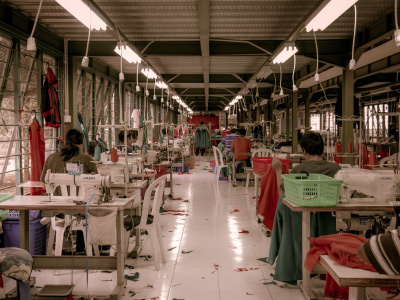
New European Commission structure should lead to more effective EU global action
On Wednesday, European Commission President-elect Jean-Claude Juncker put forward his proposals for European Commissioner portfolios and a new Commission structure. The new College will have seven Vice-Presidents, including the High Representative of the Union for Foreign Policy and Security Policy, each leading a project team. They will be steering and coordinating the work of a number of Commissioners. This aims to ensure a dynamic interaction of all Members of the College, breaking down silos and moving away from static structures. Vice-Presidents will also have a strategic filtering role. As a general rule, the President will not put any new initiative in the Commission Work Programme or on the agenda of the College that has not received the backing of a Vice-President. The First Vice-President- designate, Frans Timmermans, responsible for Better Regulation, will seek to ensure that every Commission proposal respects the principles of subsidiarity and proportionality.
For external relations, the EU High Representative for Foreign Affairs/Vice-President of the European Commission-designate, Federica Mogherini, will be responsible for the project of 'A Stronger Global Actor'. She will steer and coordinate the work of all Commissioners with regard to external relations – the Commissioners for European Neighbourhood Policy and Enlargement Negotiations; Trade; International Cooperation and Development; and Humanitarian Aid and Crisis Management (this was a recommendation of the European Think Tanks Group report “Our Collective Interest: Why Europe’s problems need global solutions and global problems need European action”). She will also be able to draw on the Commission’s policy instruments and expertise in many areas where the EU’s international partners are keen to work with the EU. These include policies under the responsibilities of the Commissioners for Climate Action and Energy, Transport and Space as well as Migration and Home Affairs. The aim is to anticipate events early and to swiftly identify common responses and to be more effective in bringing together the tools of Europe’s external action.
Mission letters from Juncker to the new Commissioners set out priorities. Neven Mimica, the Commissioner-designate for International Cooperation and Development, is responsible for preparing the Commission and EU positions for the negotiations on the post-2015 United Nations Millennium Development Goal agenda, preparing and launching negotiations for a revised African, Caribbean and Pacific (ACP)-EU partnership agreement, coordination with EU Member States. He will work closely with other Commissioners to help ensure that EU policies are consistent with and support its development goals and to strengthen the EU’s strategic partnership with Africa.
The European Parliament now has to give its consent to the entire College of Commissioners. European Parliament Committee chairs will have until 18 September to give their questionnaires for the nominees. The nominees will have until 26 September to respond with written answers, and confirmation hearings are expected to get under way on 29 September and last two weeks. The European Think Tanks Group has provided its report “Our Collective Interest: Why Europe’s problems need global solutions and global problems need European action” to MEPs as an input into their preparation of questions. When the report was presented to the European Parliament’s Foreign Affairs Committee, the Chairman suggested MEPs use it to prepare their confirmation hearing with the Commission Vice President/EU High Representative for Foreign Affairs. We will also send the report to the High Representative and Commissioner-designates. A final confirmation vote would take place during the October plenary session, most likely on 21 October. The final vote on the College confirmation by the European Council in Brussels should take place on 23 October and the College will take up office on 1 November.
---
Views are that of the author and not necessarily represent those of ECDPM

